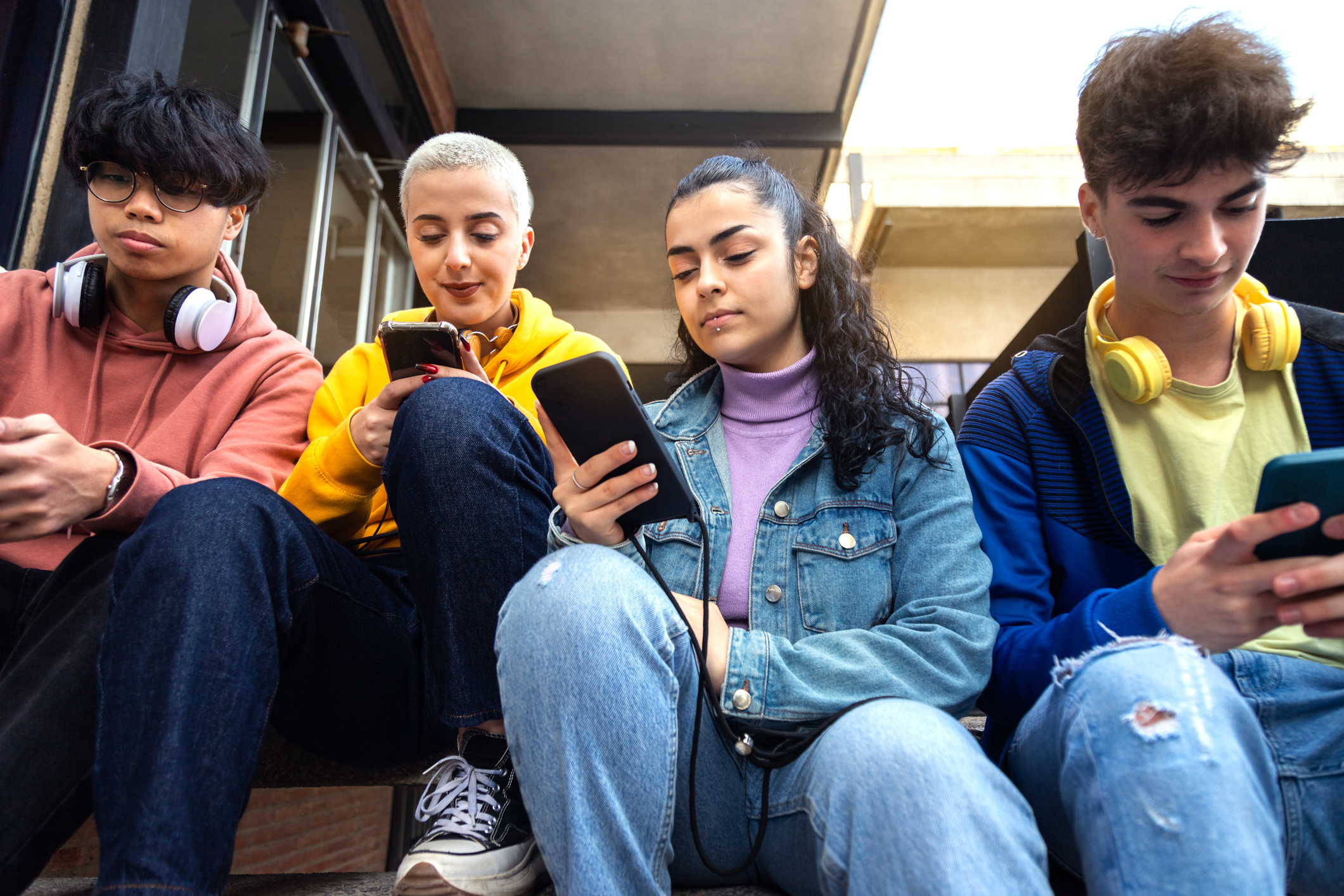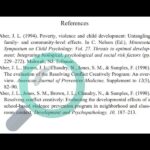The Impact of Social Media on Mental Health: Surfing the Digital Age
In this digital era, human lives have become increasingly entangled with the humongous world of social networking platforms such as Facebook, Instagram, Twitter, Snapchat etc. Many of us have reached that point in life where we cannot imagine our lives without internet. According to the International Telecommunication Union, approximately 5.4 billion people or 67% of the world’s population were using the internet in 2023 with an increase of 45% since 2018. Internet has undoubtedly made this world a more luxurious place to live in by offering an endless list of services and allowing us to communicate and collaborate globally, it is the fastest medium for sending and receiving information and the most prominent resource tool that is used for learning and educating others. While social networking has certainly enhanced human abilities, its impact on mental health has been a topic of concern.
I being a public health professional who holds an immense interest in the field of mental health, I have always been inquisitive to understand and explore the impact of social networking on mental health.
Mental health is a basic human right and is crucial to personal, community and socio-economic development. It is determined by a complex interplay of individual, social and structural stresses and vulnerabilities (WHO, 2022). Now, coming to the context of social networking, various research suggests that they can have both positive and negative effects on our mental wellbeing. So, let’s delve further into the relationship between social networking and mental health and understand its potential advantages as well as the risk it may pose.
Facebook, as we all know, is a popular social media platform that provides a sense of connectivity and social support by allowing people to connect with friends and family. Additionally, it is also considered a valuable platform for spreading health related awareness and other important social causes and it has been utilised by all the sectors of the society. Elison et al. (2007) identified that facebook usage can have a positive impact on individuals well being as the facebook users included in the study experienced higher level of self esteem and life satisfaction. Similarly, researchers examined the effects of facebook use on individual’s emotional well being over time and found that increased use of facebook led to an increase in overall well being and life satisfaction (Burke et al., 2016). A systematic review that examined the relationship between social networking sites and wellbeing reported that social media use was significantly associated with higher level of self esteem and decreased level of loneliness. (Nadarkani et al., 2012). Another study highlighted the integral role of social media on present day youth and reported that use of social media can offer range of opportunities for positive influence, personal expressions and social support and thereby contributing to positive mental health among youth (Vaigankar et al., 2022).
In contrast to the above findings, there are numerous studies that revealed the negative impact of social networking on mental health and overall wellbeing. Woods et al. (2016) explored the relationship between social networking sites uses, sleep quality and mental health among adults and the findings indicated that individuals who reported higher level of social networking sites use experienced poor sleep quality and was associated with an increased level of depression and anxiety. Another study that assessed the association between social media use and anxiety suggested that social media use was associated with greater dispositional anxiety symptoms and an increased likelihood of having a probable anxiety disorder among emerging adult population (Vannucci et al., 2017). Other two reviews that studied the association between use of multiple social media platforms and mental health outcomes indicated positive correlation between higher social media use and increased symptoms of depression and anxiety disorder (Primack et al., 2017; Lin et al., 2016). Also, social media platforms can contribute to negative body image perceptions, leading to increased risk of mental health issues such as depression and eating disorders (Perloff, 2014; Jiotsa, 2021). Cyberbullying victimization is considered another global public health issue concerning the psychological development and wellbeing. The findings of various studies have revealed that cyberbullying victims are at high risk of depressive symptoms and suicidal ideations and these effects persists for a longer period of time. (Maurya et al., 2022; Niu et al., 2020; Bottino et al., 2015).
Well, there are always two sides of the same coin and I could relate that with social media wherein on one side of the coin it looks all glorious as it offers profuse benefits making human life easier and better while on the other side it acts like a slow poison that slowly and gradually consumes human life posing a major threat on the mental health outcomes. Nevertheless, I believe balance is a key and timely implementation of protective strategies and promotional mental health and emotional wellbeing programmes such as digital wellbeing education by promoting digital literacy and educating individuals about healthy social networking habits can be crucial in reducing negative impacts. Self reflection and mindful engagement on social media can help reduce comparison and envy. Further setting limits on usage, consuming positive content and focusing on meaningful interactions can promote healthier engagement. Internet based interventions targeting mental health issues may have beneficial effects on individuals facing challenges due to unhealthy social networking habits. Additionally, schools can be used as a medium to impart education on constructive utilization of social media platforms. Balancing the benefits and potential risks is crucial for maintaining overall mental health.
However, It is important to note that while the above discussed studies provide valuable insights, more research is needed to understand the complex relationship between social networking and mental health. Also, social media utilisation and its impact on mental health needs to be closely examined and continuously monitored from a clinical and public health perspective.
Reference:
Ellison, N. B., Steinfield, C., & Lampe, C. (2007). The benefits of Facebook “friends:” Social capital and college students’ use of online social network sites. Journal of computer‐mediated communication, 12(4), 1143-1168.
Burke, M., & Kraut, R. E. (2016). The relationship between Facebook use and well-being depends on communication type and tie strength. Journal of computer-mediated communication, 21(4), 265-281.
Nadkarni, A., & Hofmann, S. G. (2012). Why do people use Facebook?. Personality and individual differences, 52(3), 243-249.
Vaingankar, J. A., Van Dam, R. M., Samari, E., Chang, S., Seow, E., Chua, Y. C., … & Subramaniam, M. (2022). Social Media–Driven Routes to Positive Mental Health Among Youth: Qualitative Enquiry and Concept Mapping Study. JMIR pediatrics and parenting, 5(1), e32758.
Woods, H. C., & Scott, H. (2016). # Sleepyteens: Social media use in adolescence is associated with poor sleep quality, anxiety, depression and low self-esteem. Journal of adolescence, 51, 41-49.
Maurya, C., Muhammad, T., Dhillon, P., & Maurya, P. (2022). The effects of cyberbullying victimization on depression and suicidal ideation among adolescents and young adults: a three year cohort study from India. BMC psychiatry, 22(1), 599.
Vannucci, A., Flannery, K. M., & Ohannessian, C. M. (2017). Social media use and anxiety in emerging adults. Journal of affective disorders, 207, 163-166.
Primack, B. A., Shensa, A., Escobar-Viera, C. G., Barrett, E. L., Sidani, J. E., Colditz, J. B., & James, A. E. (2017). Use of multiple social media platforms and symptoms of depression and anxiety: A nationally-representative study among US young adults. Computers in human behavior, 69, 1-9.
Lin, L. Y., Sidani, J. E., Shensa, A., Radovic, A., Miller, E., Colditz, J. B., … & Primack, B. A. (2016). Association between social media use and depression among US young adults. Depression and anxiety, 33(4), 323-331.
Perloff, R. M. (2014). Social media effects on young women’s body image concerns: Theoretical perspectives and an agenda for research. Sex roles, 71, 363-377.
Jiotsa, B., Naccache, B., Duval, M., Rocher, B., & Grall-Bronnec, M. (2021). Social media use and body image disorders: Association between frequency of comparing one’s own physical appearance to that of people being followed on social media and body dissatisfaction and drive for thinness. International journal of environmental research and public health, 18(6), 2880.
Niu, G., He, J., Lin, S., Sun, X., & Longobardi, C. (2020). Cyberbullying victimization and adolescent depression: the mediating role of psychological security and the moderating role of growth mindset. International journal of environmental research and public health, 17(12), 4368.
Bottino, S. M. B., Bottino, C., Regina, C. G., Correia, A. V. L., & Ribeiro, W. S. (2015). Cyberbullying and adolescent mental health: systematic review. Cadernos de saudepublica, 31, 463-475.




